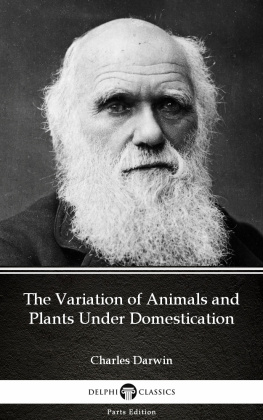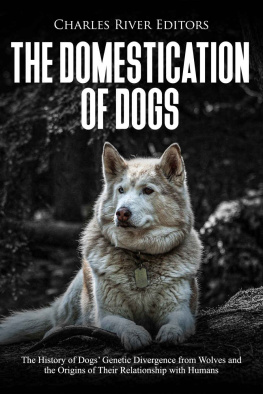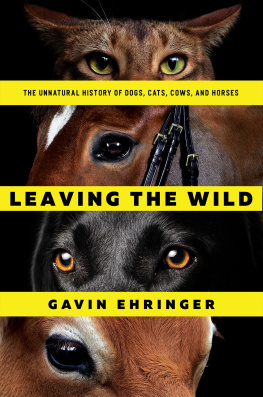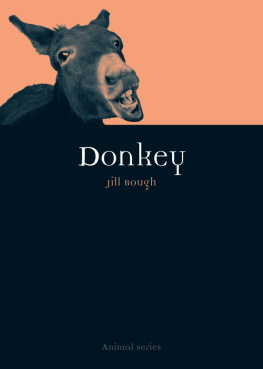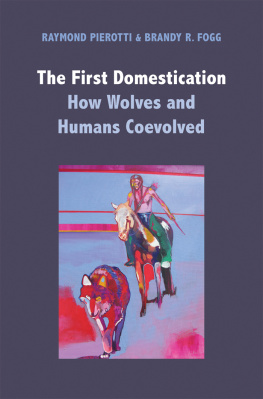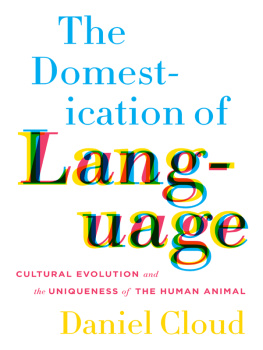
Crocodile Undone
NIGEL ROTHFELS, GENERAL EDITOR
Advisory Board:
Steve Baker (University of Central Lancashire)
Susan McHugh (University of New England)
Garry Marvin (Roehampton University)
Kari Weil (Wesleyan University)
Books in the Animalibus series share a fascination with the status and the role of animals in human life. Crossing the humanities and the social sciences to include work in history, anthropology, social and cultural geography, environmental studies, and literary and art criticism, these books ask what thinking about nonhuman animals can teach us about human cultures, about what it means to be human, and about how that meaning might shift across times and place s.
OTHER TITLES IN THE SERIES:
Rachel Poliquin, The Breathless Zoo: Taxidermy and the Cultures of Longing
Joan B. Landes, Paula Young Lee, and Paul Youngquist, eds., Gorgeous Beasts: Animal Bodies in Historical Perspective
Liv Emma Thorsen, Karen A. Rader, and Adam Dodd, eds., Animals on Display: The Creaturely in Museums, Zoos, and Natural History
Ann-Janine Morey, Picturing Dogs, Seeing Ourselves: Vintage American Photographs
Mary Sanders Pollock, Storytelling Apes: Primatology Narratives Past and Future
Ingrid H. Tague, Animal Companions: Pets and Social Change in Eighteenth-Century Britain
Dick Blau and Nigel Rothfels, Elephant House
Marcus Baynes-Rock, Among the Bone Eaters: Encounters with Hyenas in Harar
Monica Mattfeld, Becoming Centaur: Eighteenth-Century Masculinity and English Horsemanship
Heather Swan, Where Honeybees Thrive: Stories from the Field
Karen Raber and Monica Mattfeld, eds., Performing Animals: History, Agency, Theater
J. Keri Cronin, Art for Animals: Visual Culture and Animal Advocacy, 18701914
Elizabeth Marshall Thomas, The Hidden Life of Life: A Walk Through the Reaches of Time
Elizabeth Young, Pet Projects: Animal Fiction and Taxidermy in the Nineteenth-Century Archive
Crocodile Undone
The Domestication of Australias Fauna
Marcus Baynes-Rock
Foreword by Agustn Fuentes
The Pennsylvania State University Press
University Park, Pennsylvania
Photo credits: Page xvi, courtesy of Wendy Tanner; pages 26, 52, 82, 112, 134, Marcus Baynes-Rock; page 160 (isolators for chicken work in the Small Animal Facility at CSIROs Australian Animal Health Laboratory in Geelong), Frank Filippi, CSIRO, February 9, 2005, licensed under CC BY 3.0.
Library of Congress Cataloging-in-Publication Data
Names: Baynes-Rock, Marcus, 1965 author.
Title: Crocodile undone : the domestication of Australias fauna / Marcus Baynes-Rock ; foreword by Augustin Fuentes.
Other titles: Animalibus.
Description: University Park, Pennsylvania : The Pennsylvania State University Press, [2020] | Series: Animalibus: of animals and cultures | Includes bibliographical references and index.
Summary: Examines issues surrounding the domestication of wild animals and the disruption of traditional ecologies in AustraliaProvided by publisher.
Identifiers: LCCN 2019058675 | ISBN 9780271086194 (hardcover)
Subjects: LCSH: DomesticationAustralia. | EcologyAustralia.
Classification: LCC SF55.A8 B39 2020 | DDC 636.00994dc23
LC record available at https://lccn.loc.gov/2019058675
Copyright 2020 Marcus Baynes-Rock
All rights reserved
Printed in the United States of America
Published by The Pennsylvania State University Press,
University Park, PA 168021003
The Pennsylvania State University Press is a member of the Association of University Presses.
It is the policy of The Pennsylvania State University Press to use acid-free paper. Publications on uncoated stock satisfy the minimum requirements of American National Standard for Information SciencesPermanence of Paper for Printed Library Material, ANSI Z39.481992.
For Deborah Bird Rose
19462018...
Contents
Many humans believe that the world should be exploited for our benefit, a perspective especially prominent in nations and peoples committed to the contemporary neoliberal economic model. While there are societies that place limits on destructive exploitation, and in some cases even practice sustainable processes for the use of the plants, animals, space, and land with which they share the planet, a majority of human societies, religions, political systems, and economic entities act as though they believe that humans have the right to use the world as they see fit. Today, in the twenty-first century, capitalist market economies have become dominant, and the human global population continues to increase at a colossal pace. The explosion in the extraction of biotic and abiotic resources has reached a scale and impact such that the only way humans could possibly continue in this vein is by having a confidence that the earth can sustain us regardless of what we do to it.
Such a belief is wholly false. We have the data.
The chemist Will Steffen and colleagues, in their now classic essay on the Anthropocene, tell us that the human imprint on the global environment has now become so large and active that it rivals some of the great forces of Nature in its impact on the functioning of the Earth system.
The human commitment, investment, and devotion to drawing resources from our planet is not sustainable at our current pace or at our current level of global population. And it is, in part, particular beliefs in ourselves and our relations to the world that facilitated these processes of climate change and ecological disruption.
But then again, we humans are consummate niche constructors. We are ecosystem managers. It is our history, and future, to shape the world as it shapes us. With such endeavors come attendant ethical and practical responsibilities. We have the capacities to shape sustainable futures for ourselves and, by doing so, to shape sustainable processes for the ecosystems we are part of and the myriad other species with which we share them.
In order to do this, we have to seriously and effectively reflect on what we are doing and how we are doing it. The contemporary reality of our relations to all the others that share this planet requires that we shed traditional modes of explanation and understanding of what humans do with other species, and why. We need to develop novel, more entangled, and less myopic (less anthropic?) visions of where we are and where we are going. There is no better place to tackle this conundrum than by taking apart and putting back together that most human of all enterprises: domestication. And this is exactly what Marcus Baynes-Rock invites us to do. In this excellent narrative, Baynes-Rock takes us on a journey that is simultaneously visceral, intellectual, engaging, distressing, and compassionate, forcing readers to shed our restrictive lenses and recognize the undoing processes of what we so glibly call domestication.
Humanity has been and is shaped by our caretaking, consumption, manipulation, and destruction of, and our compassion for, other beings. Human evolution is a multispecies endeavor, a current in which humans and our companion species have always been caught. A current sweeping countless others into the processes of human becomingforcing them along for the ride, co-shaping our and their futures. This process of entanglement is more pervasive and broadly distributed in the Anthropocene than ever before. But this is not just a simple story of how humans bent other species to our will over the last ten thousand years, creating the tame and the wild. As Baynes-Rock so eloquently lays out for us, this is a story of undoing. A more terrifying and yet more plausible narrative.


